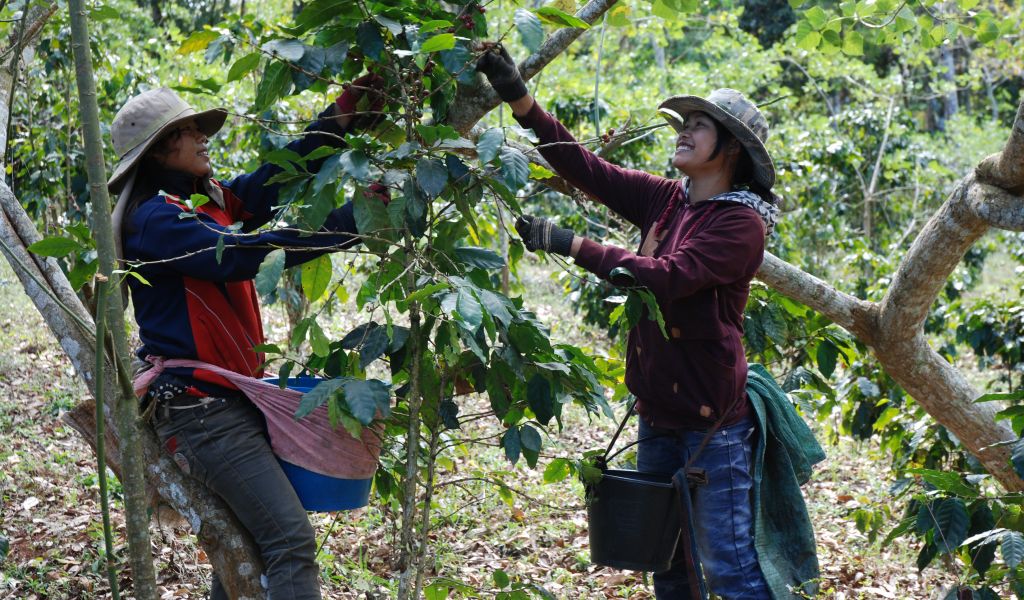Lao coffee body market in plans to expand Germany

“We hope to expand our market in Germany by producing high-quality coffee beans for export,” said Vice President of the Lao Coffee Association, Mr Sengchanh Khammountha. “We have exported coffee beans to some European countries, including Germany, for years but due to the support of two projects by GIZ, including related and complete projects, we will be able to export more in future,” he added.
The projects support local coffee growers by providing technology used after harvesting coffee berries to produce high-quality coffee beans, organised coffee exhibition which can increase sale in local markets and will help the growers access new markets in Germany. “There is high completion in the world coffee market, and we can increase our competitiveness through the quality and taste of coffee beans. This will increase sales and increase the income of coffee growers in Laos,” he said. The support and cooperation from GIZ for Lao coffee growers started in 2014 and is set to end next year. However, the Lao Coffee Association hopes GIZ will extend this support for a few more years, especially technical support.
Currently, the local price of coffee berries is about 2,800 kip per kg and 24,000 kip per kg for green beans. The total area in Laos used to produce coffee is 95,400 hectares as of 2018, with total production recorded at 154,135 tonnes, compared to 77,540 tonnes in 2015. Most of this area is in the Boloven Plateau. The coffee varieties grown in Laos are Arabica and Robusta. Lao coffee exports have gone up from 28,320 tonnes in 2017 to 31,495 tonnes in 2018. Last year, 56 percent of Lao green coffee bean exports to international markets went to Vietnam, 13 percent to Japan, 12 percent to Thailand, 3 percent to Cambodia, 2 percent to Germany, 1.5 percent to China, 0.9 percent to the US and 11 percent to other countries.
In the domestic market, Lao coffee products such as three-in-one and coffee beans are sold by coffee shops such as Amazon, Dao Heuang, Sinouk and Joma. These shops are located in Vientiane, Pakxe city, Luang Prabang city and Kaysone Phomvihane city.
Information source: Vientiane Times.
